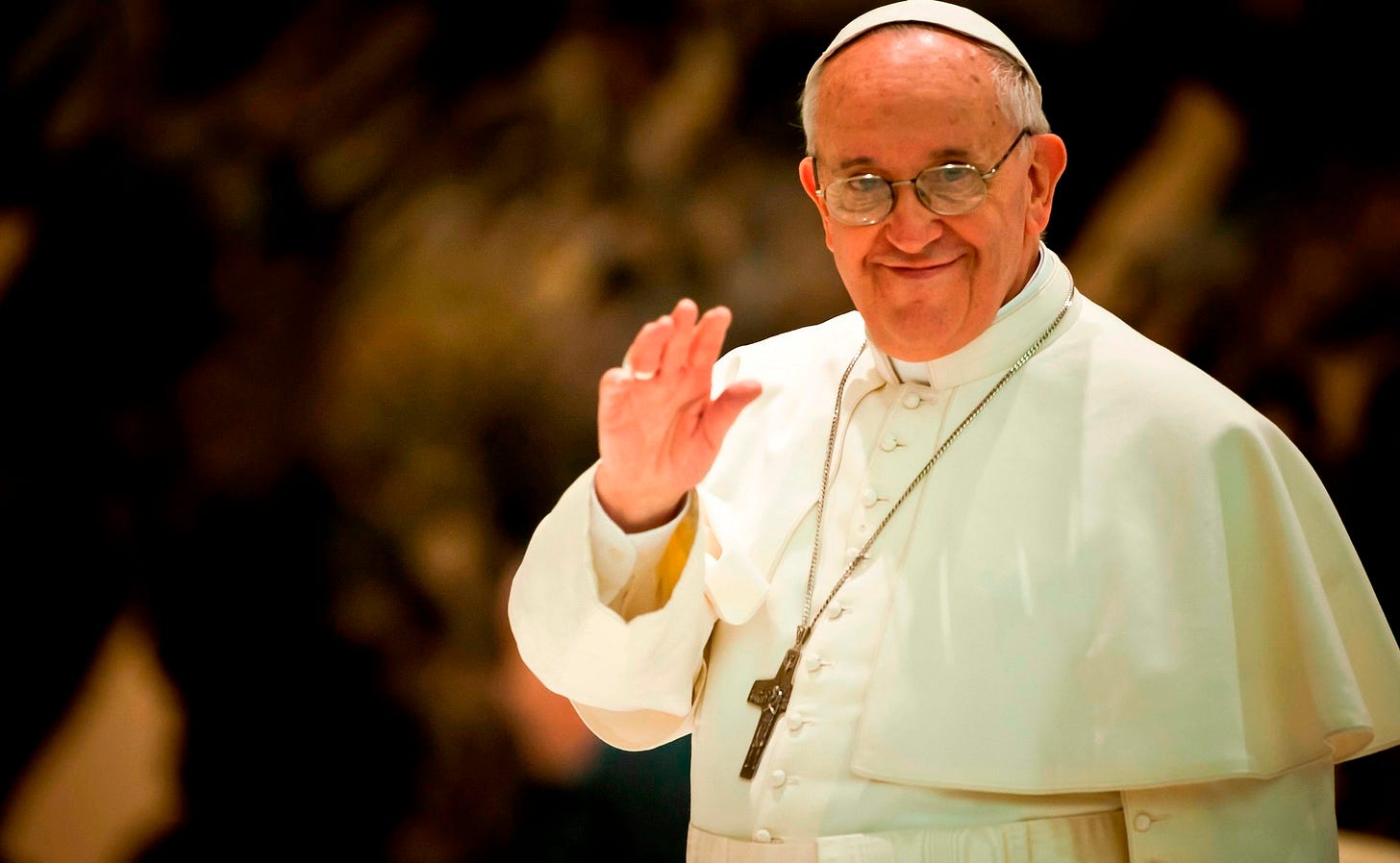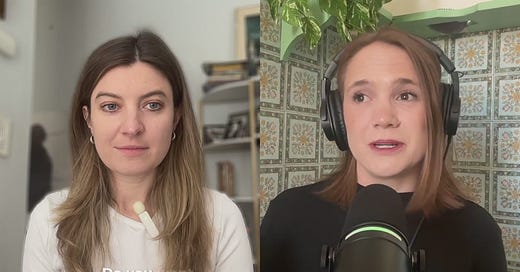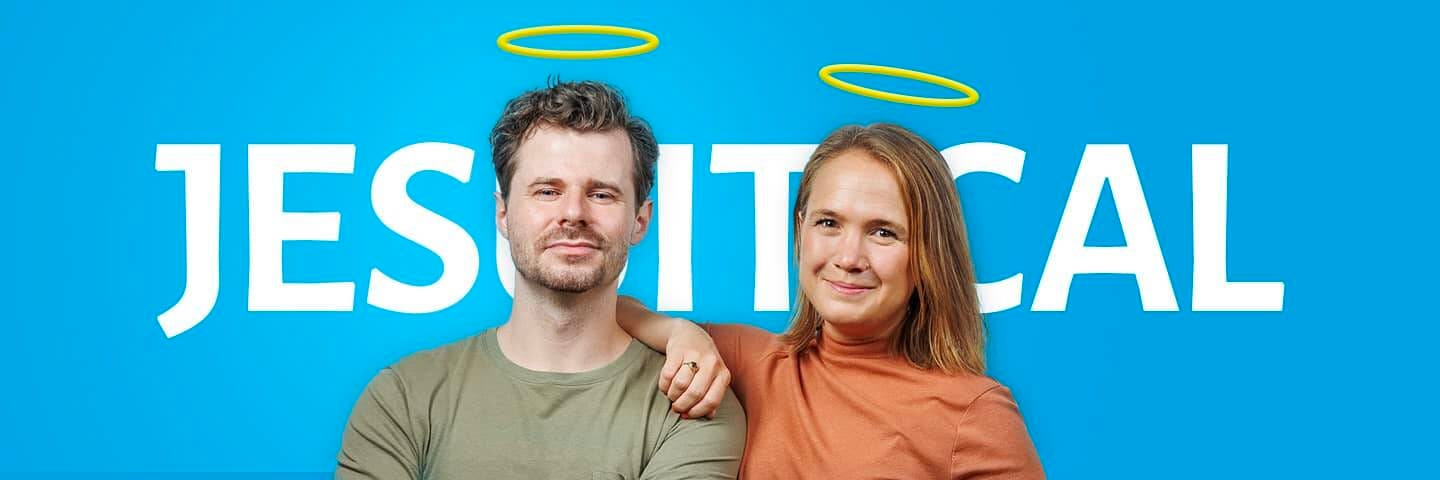Usually this newsletter examines spirituality through a Jewish lens, but today we’ll be exploring the life and legacy of Pope Francis, who passed away this April at the age of 88. Whether you’re a member of the Catholic Church or not, the pope matters. He is a global leader who sets the agenda for 1.4 billion Catholics worldwide and who has, in many ways, an international and interdenominational impact.
The death of Pope Francis has necessitated the selection of a new pope in a complex process known as the Conclave. The concept of the Conclave has recently found popular recognition in the eponymous 2024 film starring Ralph Fiennes, Stanley Tucci, and others.
Pope Francis was a complicated, charismatic leader who generated more than his fair share of controversy after he ascended to the papacy in 2013. To discuss both Pope Francis and the Conclave which is now unfolding in Rome, I spoke with Ashley McKinless, executive editor of the magazine America: The Jesuit Review. Along with Zac Davis, Ashley also hosts the Jesuitical podcast. Before her career in Catholic media began, she and I attended the University of Virginia as classmates.
During this conversation, Ashley proved to be an incredibly thoughtful and erudite source of information about Pope Francis and the Vatican—I encourage you to watch the interview here or on YouTube.
To me, the most provocative aspect of Pope Francis’s legacy was the public’s insistent perception of him as a liberal. The truth is more complicated. He was the first-ever Jesuit pope, and this priestly order is known for advancing a progressive, envelope-pushing philosophy at times. Pope Francis memorably “wanted the pastors to smell like the sheep,” as Ashley mentions in the interview.
Pope Francis was the rare liberal who lived out a personal philosophy that was critical of the excesses of capitalism. The “anti-limousine liberal,” Pope Francis slept in the Vatican’s modest guest quarters rather than in the Apostolic Palace. I admire any leader who actually walks the walk, and Pope Francis modeled a real modesty and humility with his lifestyle, clothing, and other choices.
Yet Pope Francis also possessed that classic liberal shortcoming of myopia. With his attention spread across problems and people throughout the world, Pope Francis was not always an effective leader for serious issues pertaining to the very Church that he was charged with leading. Pope Francis dealt in a lagging, incomplete, and at times denialist manner with the rampant child sex abuse scandals that have long plagued the Catholic Church. When you’re green-lighting a Nativity Scene at the Vatican featuring a Baby Jesus wrapped in a Palestinian keffiyeh to make a political statement about the Israel-Gaza war—which Pope Francis did last Christmas—but you’re not effectively protecting children within your own religious community, you are creating an optics problem.
Doctrinally, Pope Francis didn’t actually change so much. Yet as Ashley observed, the tone of the Catholic Church is what was transformed under Pope Francis’s leadership. This first pope from the Global South felt compelled to uplift and included the marginalized. In the eyes of many, Pope Francis brought a certain acceptance, unconditional love, and sense of approval that many Catholics had never felt before.
I encourage readers of all faiths to read writer Andrew Sullivan’s beautiful tribute to Pope Francis. Here’s an excerpt from Sullivan, a gay Catholic man: “Francis’ transparent love for all of us, including homosexuals, disarmed me. Or more accurately, on a few occasions, it prompted me to break down and weep…It is hard to express what those simple words of human recognition and love did to me, after so many years. It was like a dam breaking in my soul.”

Are you truly a liberal if you’re simply upholding the changes that the Catholic Church already made to modernize itself during its 1960s-era Vatican II Council? After all, that’s what Pope Francis was doing, especially with regards to his crackdowns on the Latin Mass. (The Latin Mass, once perhaps on its way to obsolescence after Vatican II, is now making a loud comeback in certain traditional Catholic circles.) Ashley and I ponder this question in our interview.
Pope Francis was a passionate and complex leader with a lot of charm. Watching from the outside, I felt moved by his expansive and open heart. I will miss seeing him in the news, when he was almost always saying something memorable.
Paid subscriptions allow this newsletter to further grow and expand. Make your investment in First Things First here.
I advise clients across industries on a broad array of writing and career projects. If I feel right for you, visit my business website to learn more and to book a session.
Selim Tlili (New York, NY), writing in Edutopia-George Lucas Educational Foundation about the connections between art and science education.
Aaron Wildavsky (New York, NY) just launched a smart, fabulous podcast called The Rabbi Is Busy. There’s so much more to say, but for now I’ll just direct you to Spotify, where you can listen and enjoy. Please consider following/subscribing to show your support. You won’t be sorry.












Share this post